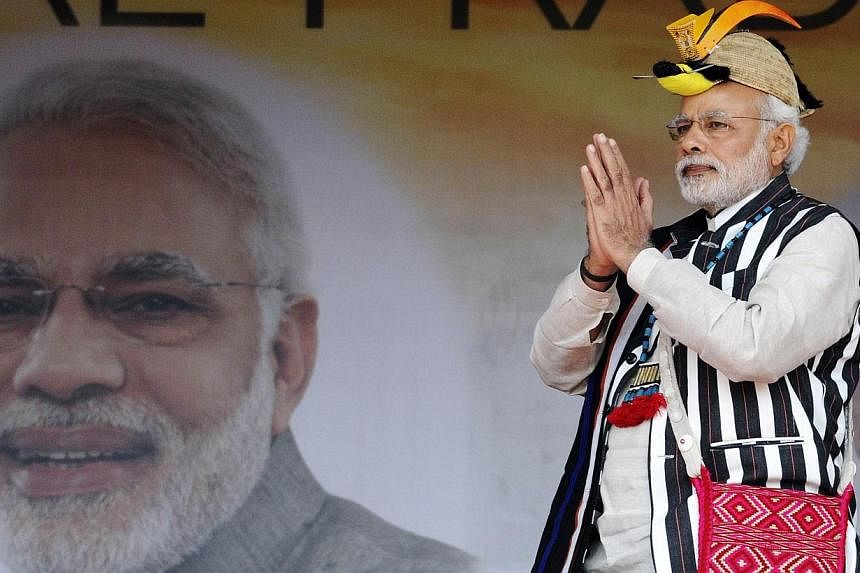The Bharatiya Janata Party (BJP) has suffered a big drubbing in the legislative assembly elections in the Indian national capital of Delhi. Is this a sign that the electorate is fed up, or are local factors responsible for this? It is too early for a clear answer to this question.
It is slightly over six months that a new government took over in India. Even those who did not vote for the BJP, were hopeful that here was a government, not hamstrung by coalition compulsions, that would jump-start the economy. And also jettison the fringe elements in the BJP, who believe in needling (and more than that) the religious minorities.
In Narendra Modi, the new Prime Minister, the electorate saw a go-getter. And he said industrialisation would be his priority. India's industrial output's share in GDP has stagnated at about 25 per cent for a quarter of century. Modi is an unabashed admirer of China, in how the Chinese authorities get things done.
International investors and the Indian diaspora gave him the thumbs up. Financial capital (not FDI) has flowed into India in a big way - the Indian stock market is booming (around 50 per cent higher against a "measly" 15 per cent in Hong Kong).
The reality on the ground, however, gives a sense of deja vu.
There have been no "green shoots" visible. This is in spite of the collapse of the international price of oil - India's major (inelastic) import. And the loony Hindu fringe groups continue to engage in making life uncomfortable for religious minorities. There have been cases of arson in churches in Delhi. The police investigation is lackadaisical and there is no expression of displeasure, let alone action, from the Prime Minister. The government has done a complete U-turn on a lot of promises, including making some classified documents public and to pass laws in Parliament rather than through Presidential ordinance.
The government promises a "big-bang" budget at the end of this month and to carry "the reform process forward". As a macroeconomist I am a little puzzled by all this and the constant reference to "low-hanging fruit".
A part of my concern is due to the lack of space for manoeuvre.
India could have occupied some space that China was vacating in the supply of simple labour-intensive products. But this is not an option due to the sluggishness in international markets.
The expansion of domestic demand is also not feasible. It is hamstrung by the existence of huge public debt overhang. And inflation, although is coming down, is nowhere near a level where monetary policy could be used aggressively.
And the icing on the (dismal) cake is provided by the well-wishers - capital inflows have caused the rupee to appreciate, so that even moderate gains in international competitiveness have not occurred.
So when people talk of the reform process, it boils down to some supply side actions. Make labour laws flexible, make land acquisition for private industry easier, and, most disturbingly, banish environmental considerations to the back-burner and beyond. The weakening of environmental regulation (even currently observed mainly in the breach) would be disastrous. India's rivers are polluted and its forest cover shrinking. The forests are the source of livelihood for the poorest of the poor in India-the tribal population.
In the absence of industry, there will mining for coal-fired power stations and export. If industrialisation were to take place then the trade-offs are, at least, visible. But in its absence, mining becomes a way to reduce India's trade deficit, and to enrich some political supporters. And, while China can be a role model in quite a few activities, surely environmental protection is not one of them.
Thus I am not sanguine about India's prospects in the near future. If economic growth does not take off, there is no hope that the loony medieval mindset elements would be put on a leash.
That would be a pity for India. And the BJP would have squandered a golden opportunity to transform itself into a modern right-of-centre party.
The writer, a former Director of the Delhi School Economics, is currently a Visiting Professor at Hong Kong University of Science and Technology.

